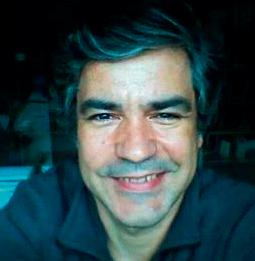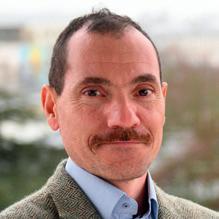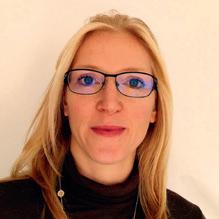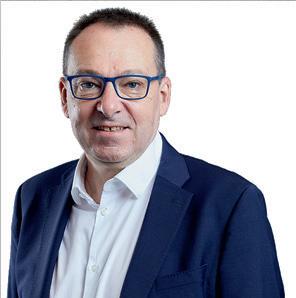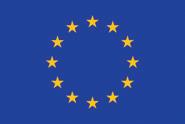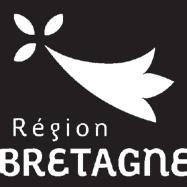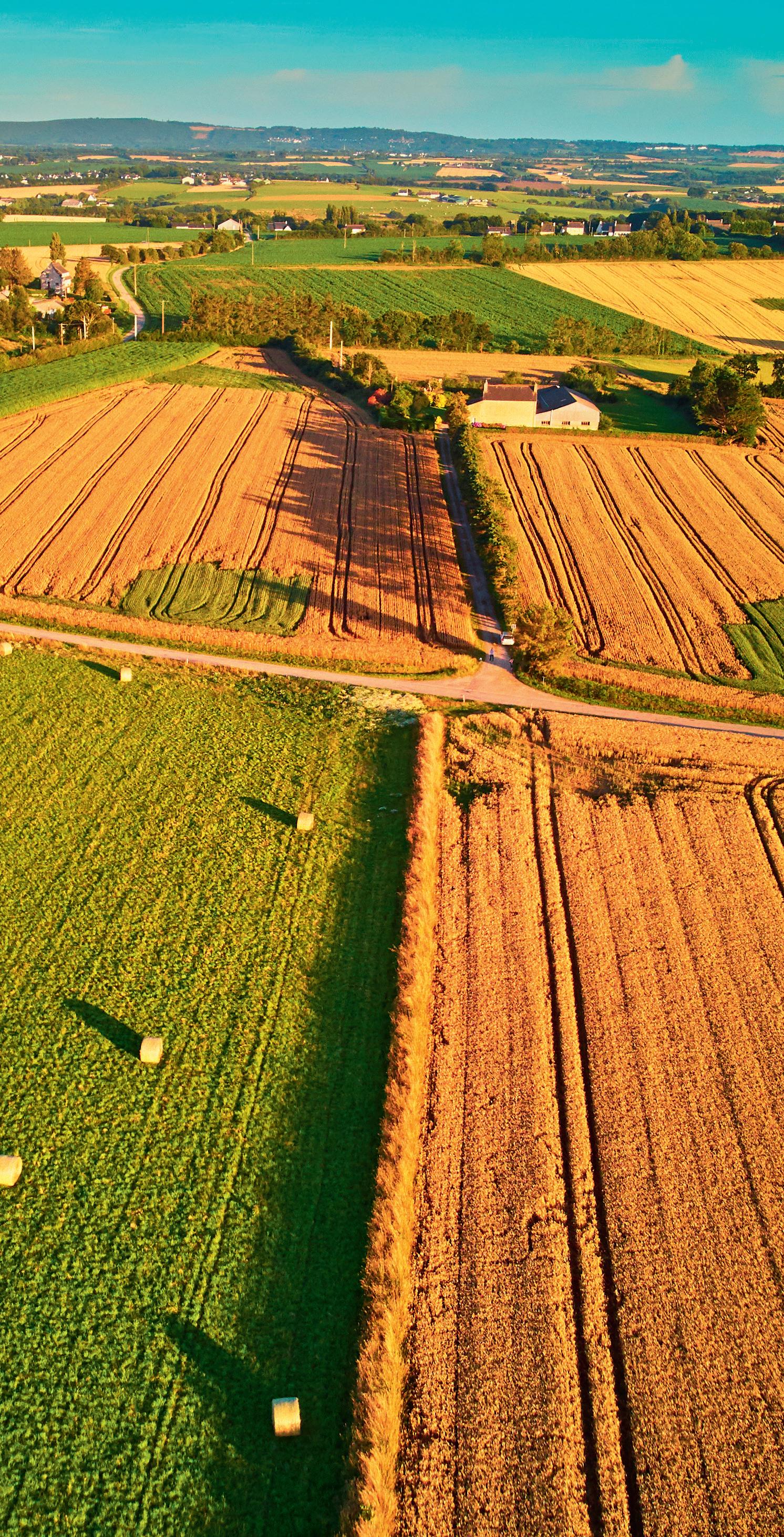Brittany welcomes post-docs with Bienvenüe

The Brittany region of France has a long tradition of technical innovation, and ambitious plans are in place to encourage continued development across a range of fields. We spoke to Olivier David about how the Bienvenüe programme is helping to attract talented post-doctoral researchers to the region, supporting the technical development that will spur the industries of tomorrow.
The Brittany economy has changed significantly since the ‘70s, building on its traditional strengths in agriculture and fishing, while also embracing the technical development and innovation that will encourage growth in the industries of tomorrow. Continued commitment to research and development is crucial to both the health of the Brittany economy and the region’s ability to address major contemporary challenges says Olivier David, Vice-President for Student Life, Higher Education and Research at Région Bretagne. “We want to support projects that will help us deal with issues around the environmental, energy and social transition,” he outlines. This was a major motivating factor behind the founding of Bienvenüe, an international postdoctoral fellowship programme designed to attract talented researchers to Brittany, coordinated by Région Bretagne. “New knowledge is being produced by laboratories and research facilities across Brittany. With Bienvenüe, we aim to attract researchers from across the world,” continues Olivier David.
Bienvenüe programme
This spans research across a variety of different fields, from the maritime economy to digital technology to amateur film. Projects in a wide range of disciplines are supported under Bienvenüe, including chemistry, biology and ethology, although they must be related to the priorities identified in the Smart Specialisation

Strategy (S3), which sets out the region’s approach to research and innovation up to 2027. “The Bienvenüe programme builds on the S3 strategy, in which we identified different areas which are particularly important for the Brittany economy,” outlines Olivier David. The programme plays an important role in this respect by offering support for both applied and fundamental research, with the scientific quality of the proposal the main criteria in evaluating projects. “The evaluations are carried out by a panel of external experts, and scientific quality is the main
consideration,” explains Olivier David. “Fellows choose their own research topics, and once funded, they have complete freedom to pursue their project interests.”
A high degree of academic freedom is typically highly valued by post-doctoral researchers looking to forge their own careers and establish themselves in their field. However, while post-docs typically value academic freedom, some may also want a degree of support, which is also provided in Bienvenüe. “The fellows work alongside a supervisor, who offers guidance in their research,” says Olivier David. The fellows are

also supported in dealing with administrative issues and in cultural integration, which Olivier David says will help them get the most out of their time on the programme.
“We, at Région Bretagne, support the fellows and help them find the right contacts to deal with any issues at their resident institution and their laboratories,” he outlines. “We work with the international mobility centre, which helps foreign students deal with visas, accommodation and administrative paperwork. The host institutions are also used to welcoming students from all over the world, so all the fellows have the opportunity to attend French courses.”
whether that’s in academia or the industrial sector. An academic career is not purely about conducting research, there’s also a communication aspect, which Olivier David says is reflected in the training provided in Bienvenüe. “During their project they complete six days of research-oriented training, and also six days of training in transferable skills,” he explains. In terms of training in their chosen field, fellows can
“New knowledge is being produced by laboratories and research facilities across Brittany. With the Bienvenüe programme, we aim to attract researchers from across the world.”
attend relevant conferences identified in consultation with their supervisor, while courses of broader interest are also offered.
have addressed topics like open data, ethics and integrity in research, innovation and intellectual property.”
Collaborations with industry
The fellows also have the opportunity to attend courses during the programme, intended to equip them with the skills they will need for their future careers,
“We organise the European Responsible Research and Innovation Event for example. This is a two-day event, which is more about soft skills and topics that will be of interest to all the fellows, regardless of their field,” continues Olivier David. “For example, we

www.euresearcher.com
© Philippe Erard / Région Bretagne
A poster session is also on offer in Bienvenüe, where fellows can learn how to present their research in a more accessible way, which can be very important to attracting wider attention. While many of the projects in Bienvenüe are fundamental in nature, there are also others that may be of interest to industry, and Olivier David says Région Bretagne supports those researchers who are keen to explore potential commercial opportunities. “We arrange regular meetings with representatives from industry,” he outlines. These meetings have already led to some fruitful collaborations, for example Bienvenüe fellow Dr Silke Lehmann is collaborating with a local company to build on the progress she has made in the VASEC project. “The VASEC project is about valorising seaweed, and now Dr Lehmann has helped develop a screening technique in a collaboration with an industrial partner,” says Olivier David. “We will also do a follow-up on the projects supported in Bienvenüe, and the fellows will be asked to submit their reflections.” This could then influence the development and direction of future projects, with plans in progress to apply for a further fellowship programme under the cofund scheme. The number of academic partners will increase to 19 from the 8 involved in Bienvenüe, evidence of the success of the programme in attracting talented researchers and strengthening Brittany’s culture of innovation and research development. “The Bienvenüe programme has helped Breton laboratories to attract new people and to highlight their own strengths and attributes. This is very important for the internationalization of our research culture,” stresses Olivier David.
BieNveN üe
Welcoming highly-talented international post-docs in Brittany
Project Objectives
The BIENVENÜE programme is a regional programme for post-doctoral fellows, aiming at improve the attractivness and visibility of Breton laboratories in its leading domains, maximize the impact of the Breton R&I strategy (S3) on the local development and reinforce human potential by helping fellows to develop their skills and career prospects.
Project Funding
This project has received funding from the European Union’s Horizon 2020 research and innovation programme under the Marie SkłodowskaCurie grant agreement No 899546.

Project Partners
• Institut Agro Rennes-Angers
• IMT Atlantique
• Inria
• Université de Bretagne Occidentale
• Université Bretagne Sud
• Université de Rennes
• Université Rennes 2
Contact Details
Project Coordinator, Patrica GAUTIER
Cheffe de projet européen COFUND –BIENVENÜE
Région Bretagne
T: +02 99 87 43 52
e: msca-bienvenue@bretagne.bzh
W: https://msca-bienvenue.bretagne.bzh/


